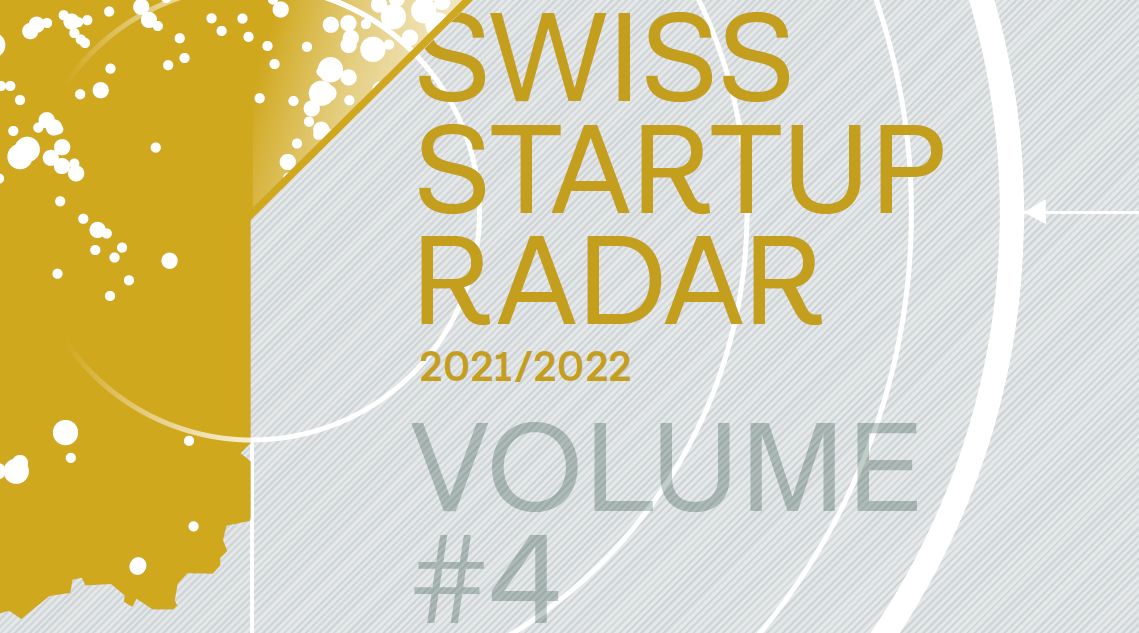
Switzerland as a deeptech hub has many strengths and has achieved a high level, particularly in technology transfer and early stage financing, but challenges remain in implementing digitalisation and accelerating growth. These are some of the core findings of the fourth Swiss Startup Radar, which compares the performance of the local ecosystem with other countries and regions on the basis of quantitative analyses.
There are many approaches to measuring the quality of a start-up location. A simple but plausible indicator is a country’s ability to attract founders from abroad. In the eyes of entrepreneurs, these states apparently offer better conditions than their country of origin. Switzerland scores very well on this criterion, with a positive net migration. The number of foreigners in the management at Swiss start-ups is 47 % higher than the number of Swiss working for foreign start-ups. With 31% the proportion of immigrants in start-up teams is much higher in this country than in any other country in our comparison. In this indicator, Switzerland is even ahead of the US, with only Singapore on a similar level to Switzerland.
Data analysis of people at start-ups reveals another strength of the local ecosystem. The proportion of CEOs and executives with doctorates is higher than in any other com-parable country, with a ratio twice as high as in the UK or the US. Switzerland rightly sees itself as a deeptech nation.
High density of start-ups
Switzerland is doing well in early financing rounds today. In 2020, about four Series A financing rounds per 100,000 inhabitants were carried out. The rate is on a similar level to that of the US and is higher than in the UK or Sweden. The success is attributed to the increased activity of Swiss investment companies and business angels, which have contributed to the upswing in the number of financing rounds through their investments in domestic companies.
Widening gap regarding growth
Although the number of start-ups and early stage financing is at a good level by international standards, the weakness in growth has become more pronounced. Technology companies in this country in the 11–15 year-old age group employ on average 16 people, significantly fewer than in comparable countries. A reason for this is lower average investments in the growth phase.
The gap to other countries has widened in recent years. A central reason is that Swiss start-ups have not been able to benefit from the digitalisation boost triggered by the corona crisis to the same extent as competitors from countries such as Sweden or Israel.
Challenging financing for female founders
One problem that affects all ecosystems is the low number of female founders and managers. In addition, start-ups led by men attract significantly more capital – in Switzerland, 2.7 times more – than companies run by women. The argument that no suitable candidates exist for jobs in young technology companies can be refuted by an analysis of women-led start-ups, which shows that the proportion of female employees is more than 40 %.
The Swiss Startup Radar, published today, offers numerous further insights all based on quantitative analyses and comparisons with other countries. The fourth study focuses on the topics Covid-19 and the digitisation boost, characteristics of founders and the development of VC financing in Switzerland. The authors are Michael Rockinger, professor of finance at HEC Lausanne, University of Lausanne, and Stefan Kyora, editor-in-chief of the news portal startupticker.ch. The report again presents the results in German, French and English. Swiss Startup Radar is supported financially by Gebert Rüf Stiftung, Innosuisse, digitalswitzerland, State Secretariat for Economic Affairs, the Canton of Zurich and State Secretariat for Education, Research and Innovation.
The report is available for download.
(Stefan Kyora)























































Please login or sign up to comment.
Commenting guidelines